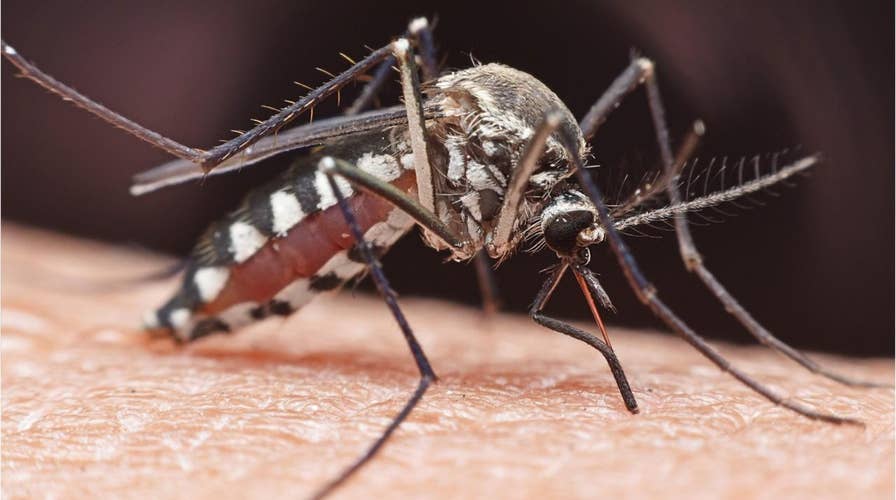How to keep mosquitoes away this summer
Hot and humid weather brings out those pesky mosquitoes. Here are a few simple tips to live a mosquito-free summer.
It’s time for my annual public service announcement and this year it's on mosquitoes. Now while I’m sure there is some ecosystem reason for their existence, if I could kill every single mosquito within a square mile of myself at any given time, I would.
My mother always used to try to make me feel better by saying, “My blood is sweet” as I was crying and manically itching the swollen, red, itchy as all get-up bites that magically appeared all over my body after a warm summer’s night spent outside.
Since mosquitoes come out in the spring and summer, a lot of scientists predicted that a very cold winter would significantly decrease the mosquito’s population but it might actually seriously increase this summer since mosquitoes are more resilient than their natural predators, such as bats and birds, to the cold.
MALARIA 'BREAKTHROUGH': DISEASE-CARRYING MOSQUITOES WIPED OUT IN MAJOR LAB EXPERIMENT
So let’s look at the numbers to get ready.
First off, what are your actual chances of getting mosquito bites?
Well, first of all, you don’t usually get just one. Research shows that once mosquitoes get in a group of 10 or more, they become a swarm and that means that the individuals start behaving collectively. That group mentality thing is really annoying.
Now the real question is how many of these little monsters are actually going to bite you because a lot of them just seem to fly into your glass of wine on the porch.
The curator of insects at the University of Alaska Museum of the North estimates that there are 17 trillion mosquitoes just in Alaska. And it's cold there… How do they figure this out? They look at how many mosquitoes can be found in a square foot area and observe -- worst job ever.
But there is a bright side! Only females actually bite you because they feed on blood in order to mature the eggs they carry whereas the males feed on nectar. So given those friendly dudes out there and the fact that one of the females might have just had a nice dinner on your camping buddy -- I did some back-of-the-envelope calculations that showed at any given time during the summer, there are about 72.92 trillion mosquitoes out there looking for a nibble.
To put that in perspective, that is over 220,000 biting mosquitoes per person in the United States and at 0.0000055 pounds each, that’s over 400 million pounds of carnivorous mosquitoes, the equivalent weight of 40,000 elephants.
This means that when you swat one away, there are a lot more where that came from, so statistically speaking, can you stop these monsters from biting you?
Mosquitoes can detect carbon dioxide in your breath up to 200 feet away. So, if you do get bitten, don't dance around swearing. You'll only broadcast your location by releasing more carbon dioxide.
Even if you could hold your breath, and hope the mosquito targets the person sitting next to you, mosquitoes use visual targets once they have latched on to CO2 trails, meaning they will bite you anyway. Interestingly, camouflaging yourself is a good way to remove yourself from their sight.
There are statistically significantly more mosquitoes found at an increasing height from 3-12 feet so if you’re tall, maybe slouch a little? Research shows that mosquitoes demonstrate a preference for women with a larger BMI. The hypothesis was that larger women provide a more substantial visual target as well as greater amounts of heat, moisture, and carbon dioxide. I’m not sure if the statistics really hold up to that one, but maybe my momma was wrong and my own blood isn’t sweet but really I just need to lose a couple of lbs.
CLICK HERE TO GET THE FOX NEWS APP
Interestingly, the old wives tales of eating onion or garlic holds show no statistical difference in making you less attractive to the little monsters, but perhaps only to your camping partners.
Overall, your best bets are camo and bug spray, but there really is no getting away from these little monsters.









































